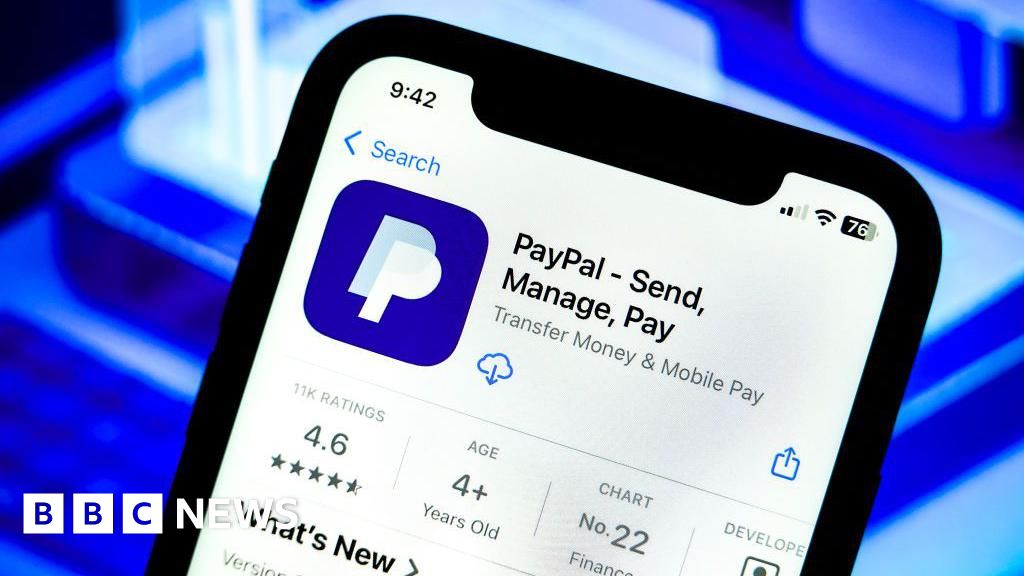European banks have seen widespread unauthorised direct debits from PayPal accounts, the German Savings Banks Association (DSGV) says.
The German newspaper Sueddeutsche Zeitung (SZ) reports that payments worth approximately €10 billion (£8.6 billion) have had to be blocked after PayPal's fraud-checking system failed.
Payments were paused on Monday when lenders reported millions of suspicious direct debits from the payment firm.
The DSGV confirmed to the BBC that there had been incidents involving unauthorized direct debits initiated by PayPal against various credit institutions.
The BBC has approached PayPal for comment.
The firm stated that certain transactions from its banking partners and potentially their customers had been affected by a temporary service interruption. PayPal noted that it quickly identified the cause and is working closely with banking partners to ensure that all accounts are updated.
The DSGV mentioned that PayPal had acknowledged the disruptions and assured that the problem has been resolved; regular payment transactions are running normally.
These incidents had significant effects on payment transactions across Europe, particularly in Germany. The supervisory authorities have also been informed of the incidents at PayPal.
PayPal’s systems aim to filter out scams, striving to prevent unauthorized transactions before they reach banks. Typically, criminals set up fake direct debits by tricking individuals into revealing their financial details.
According to SZ, the filter system failed to work adequately on the day, leading to unchecked direct debits being processed alongside legitimate ones.
As a consequence of the reports, shares in PayPal dropped by 1.9% on Wednesday.





